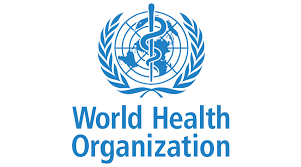
World Health Organization
tendersglobal.net

Job Description
<!–
Description
–>
The mission of the Division of Health Emergencies (WHE) is to build the capacity of Member States to assess, prevent and manage health emergency risks, andlead and coordinate the international health response to contain outbreaks and to provide effective relief and recovery to affected populations.
The WHE Division brings together and enhances WHO’s operational, technical and normative capacities in outbreaks, emergencies and risk analysis to addressall health hazards across the risk management cycle in a predictable, capable, dependable, adaptable and accountable manner. The Programme is designed tooperate within the broader humanitarian and emergency management architecture in support of people at risk of, or affected by, outbreaks andemergencies,consistent with ways that strengthen local and national capabilities.
Duties:
Provide overall support to the PRS (Prevention and response to sexual misconduct) efforts of the office under the supervision of the national, internationally recruited technical specialist.
Prevention:
- The NPO will support Operations Manager in establishing and/or strengthen internal policies and procedures in line with global standards and good practice, including:
- Ensure staff sign a Code of Conduct that clearly prohibits SEA, obliges reporting of such acts, and enforces these clauses when breached.
- Ensure the briefing and the debriefing of staff on PRS.
- Ensure that deployed staff and collaborators have completed the mandatory training.
- Assist the technical specialist in putting in place and apply practices in human resource departments that guard against hiring persons who have a record of misconduct, and include PSEA content in induction, contracts and subcontracting, and job evaluation criteria.
Response:
- Support Operations Manager in establishing PRS-specific procedures for receiving and reporting information through WHO’s Complaint and Feedback Mechanism (CFM), informed by good practice and community consultations and incorporating the relevant national laws.
- Receive allegations of SEA. And immediately refer 1) the allegation to the appropriate entity following internal and/or inter-agency procedures, and 2) the complainant to victim assistance services based on his/her consent and following established referral pathways. The Specialist should not engage in counselling complainants unless he/she is formally trained to do so.
- Actively contribute to the interagency efforts of the PSEA network, in strengthening referrals, capacity building, and implementation of the 2018 protocol on allegations of SEA involving IPs and complaints; reach the appropriate organization for follow up.
Coordination:
- Ensure that focal points are identified, trained and that the identity of the PSEA Focal Point is known throughout WHO and the PSEA Network and that contact details are made widely available.
- Regularly train staff on PSEA and WHO’s Code of Conduct, including appropriate conduct for aid workers and how to submit and receive complaints under internal and inter-agency reporting systems.
- In coordination with relevant fellow PSEA Network members (e.g. those sharing partners with WHO) provide PSEA trainings for partners.
- Assist Human Resources to insert and the Head of Office to enforce PSEA clauses in partnership contracts that include a PSEA commitment by the partner and clarify SEA reporting and investigation responsibilities.Engagement with and support of the affected populationAll engagements with the local population should be shared with the PSEA Network and done in coordination with actors working with affected populations to avoid duplication of efforts and to inform said engagements.
- Map existing community engagement projects in WHO and work with project leads to insert PSEA messages and/or gather community input where appropriate.
- Under the supervision of the technical specialist Conduct regular consultations to learn community preferences in reporting sensitive information, their perspectives of aid workers’ attitudes and behavior, and their input on how to speak about sexual issues in a culturally appropriate manner.
Required Qualifications:
Education
Essential:
- A first level university degree in law, social sciences or related area from a recognized/accredited institution.
Experience:
Essential:
- At least two years of relevant national and international professional experience in the field of sexual exploitation and abuse, gender-based violence and/or humanitarian affairs.
Skills:
- Proven integrity, objectivity, and professional competence
- Strong communication, facilitation, and inter-personal skills
- Effective time-management skills
- Demonstrated experience working directly with local communities
- Strong capacity to embrace cultural diversity and sensitivity to gender issues
- Ability to maintain confidentiality and ensure constant data protection
- Ability to interact in a sensitive manner with survivors
- Ability to work in a stressful environment
- Strong knowledge of the local context, and WHO’s institutional approach on PSEA and related strategies, policies, rules and regulations.
Language Skills:
Essential:
- Expert knowledge of English. Expert knowledge of Ukranian.
Source: https://careers.who.int/careersection/ex/jobdetail.ftl?job=2403323
<!—
Recommend your friend
<!–
–>
Provide overall support to the PRS (Prevention and response to sexual misconduct) efforts of the office under the supervision of the national, internationally recruited technical specialist.
To help us track our recruitment effort, please indicate in your cover/motivation letter where (tendersglobal.net) you saw this internship posting.
Related Jobs
-

Designer – Illustrated Books, Penguin Michael Joseph
Penguin BooksLondonLondon -

Senior FP&A Analyst (m/w/d)
LRE Medical GmbHBayernBayern -

Associate Level 1 – Client Services
Fidelity InternationalKingswood, SurreyKingswood, Surrey -

Business Analyst (m/w/x)
ZeissOberkochen, Baden-WürttembergOberkochen, Baden-Württemberg
